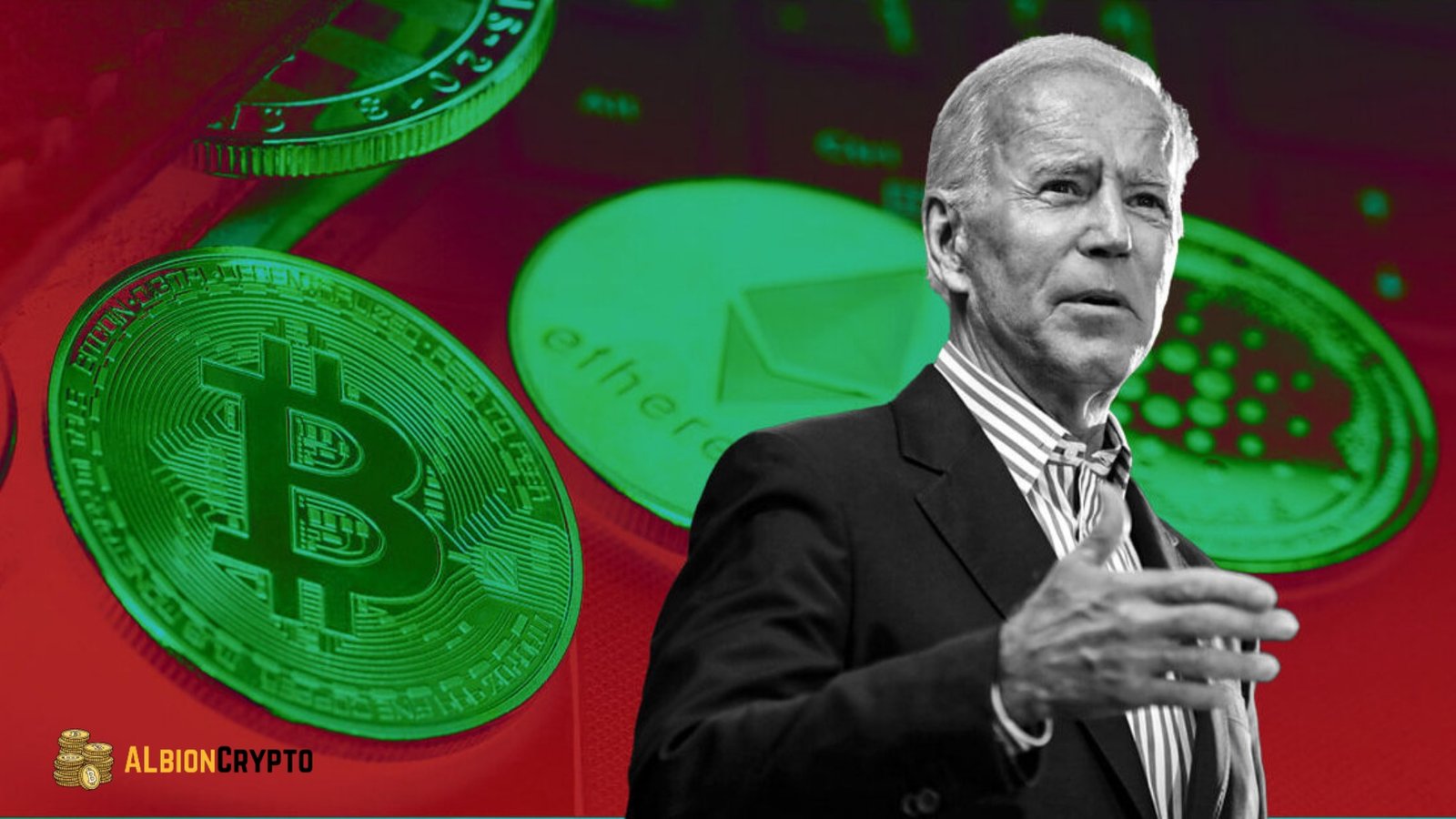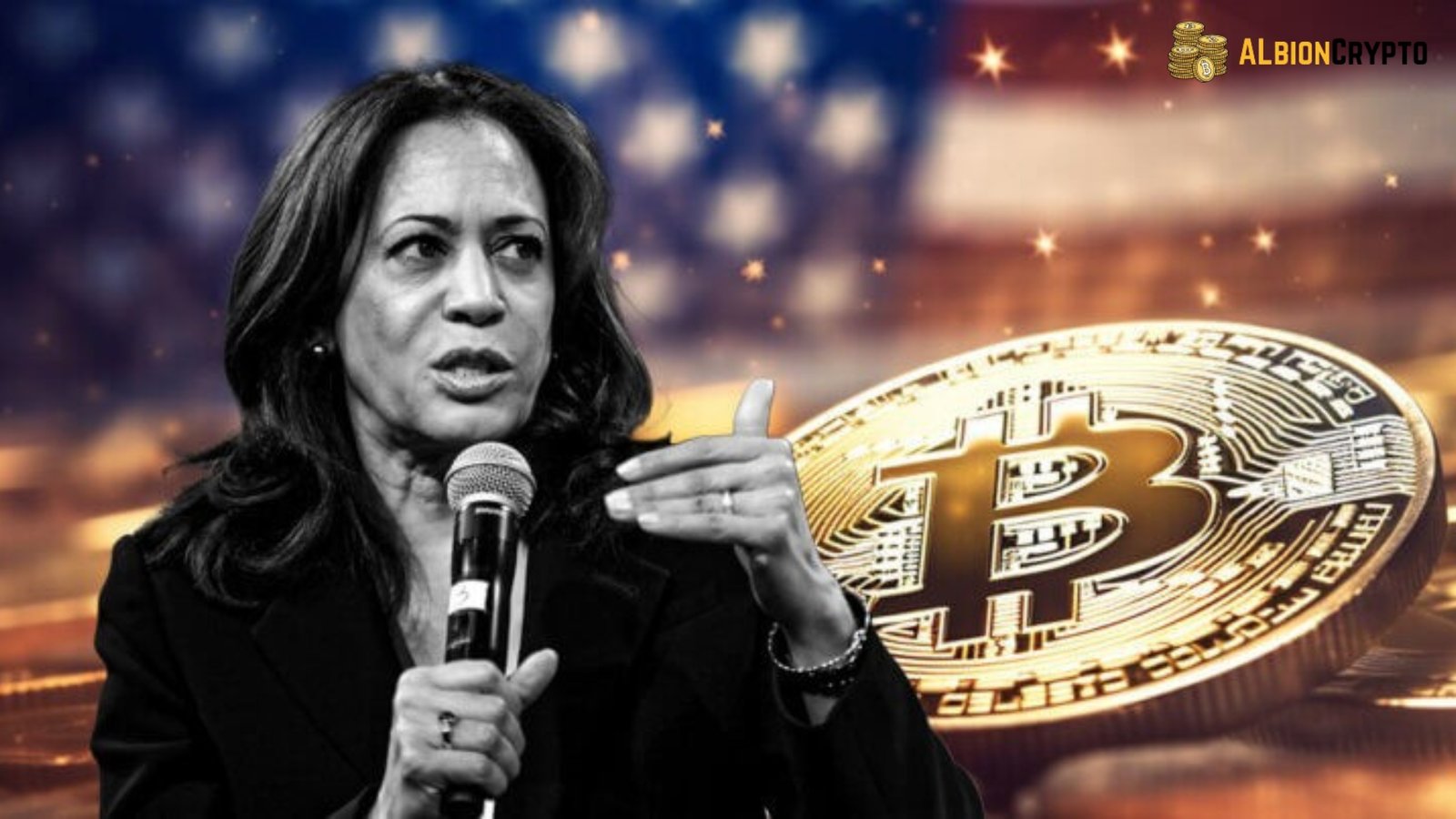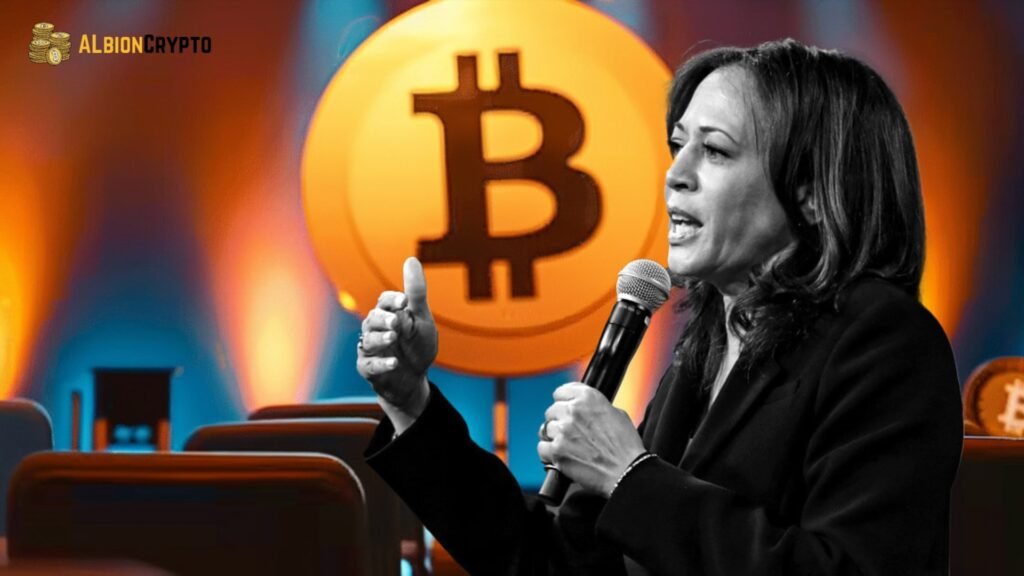One of the most discussed financial moves in recent years has been the emergence of cryptocurrencies, the most well-known of which is Bitcoin. Politicians have started to weigh in on the function of cryptocurrencies as the public, banks, and governments all try to make sense of this new and changing environment. That includes the present U.S. Vice President, Kamala Harris. This article explores Kamala Harris and Bitcoin’s relationship, her potential influence on cryptocurrency policy, and how her views might shape the future of digital assets in the U.S.
Kamala Harris’s Political Background
Kamala Harris has been one of the most visible figures in American politics for many years. Harris was California’s attorney general and a senator before becoming vice president. Harris has made a name for herself as a Democratic Party progressive, particularly in criminal justice reform, civil rights, and environmental policy. She isn’t as outspoken about Bitcoin or cryptocurrency as some of her contemporaries.
Regarding economic policy, national security, and technology innovation, Harris is an indispensable tool in her job as Vice President under President Joe Biden. Harris may have some sway in this space, given the Biden administration’s stance on blockchain technology and cryptocurrencies, even if she hasn’t publicly spoken about Bitcoin.
Biden Administration’s Stance on Cryptocurrency
It is necessary to examine the larger context of the Biden administration’s position on cryptocurrencies to comprehend Kamala Harris’s possible impact on Bitcoin. The administration of President Biden has been very careful with cryptocurrency, recognizing both the advantages and the risks of blockchain technology and stressing the need for regulatory frameworks to prevent digital currencies from aiding illicit activities like fraud and money laundering.
To better regulate cryptocurrencies in a way that prioritizes consumer safety, financial stability, and innovation, Biden issued an executive order in 2021 directing government agencies to do just that. The government has also developed a more uniform worldwide framework for cryptocurrency regulation in collaboration with foreign partners.
Vice President Kamala Harris shares the cautious but open-minded position on bitcoin that the Biden administration has taken. While her involvement in these discussions has been minimal, her background in law enforcement, especially as Attorney General of California, suggests that she may be more concerned with preventing criminal activity enabled by cryptocurrency rather than taking a stance in favor or against Bitcoin.
Harris’s Approach to Technology and Innovation
Technical innovation is significant in generating economic growth, and Kamala Harris has always favored it. Legislation that aided tech businesses and fostered innovation was something that Harris focused on when she was a senator. That she sees the potential of blockchain and other new digital currencies to influence economic growth in the years to come is clear from her statement.
Nonetheless, Harris has also spoken out against the lack of regulation in the digital sector, citing issues with data privacy, disinformation, and the influence of large tech businesses as examples. She takes a measured attitude to technology, encouraging new developments while being aware of potential dangers. Her guiding principles may inform her perspective on Bitcoin, which she may perceive as having the ability to promote innovation and financial accessibility while simultaneously acknowledging the necessity of governmental control to safeguard users and forestall misuse.
Cryptocurrency and Financial Inclusion
When it comes to the topic of financial inclusion, Harris’s progressive beliefs might mesh with the larger Bitcoin discourse. Some have praised cryptocurrencies, especially Bitcoin, as a means to bring financial services to people who do not have access to them, whether in the United States or elsewhere. Using decentralized financial networks allows those without access to conventional banking services to participate in the global economy.
Harris, a longtime champion for underserved populations, may see Bitcoin and other cryptocurrencies’ promise to expand access to banking services. Whether it was in the realm of economic policy or criminal justice reform, her prior positions have centered on expanding opportunities for marginalized communities. She might back initiatives to use digital currencies to increase access to financial services and economic equality if she were to get more involved in the Bitcoin field.
Concerns About Consumer Protection
Even if Bitcoin has its supporters, it has its detractors, especially in consumer safety. Legislators and regulators are worried about the crypto industry due to the high volume of scams and fraudsters and the unpredictable value of cryptocurrencies like Bitcoin. Given her experience in law enforcement and consumer protection, Harris would prioritize these concerns as Vice President.
Harris has voiced concerns over exploitative behaviors in the financial sector before. Although she did not mention Bitcoin by name, her remarks indicate that she is suspicious of any financial system that does not have enough regulation and endangers customers. For example, investors, particularly those without a thorough understanding of the dangers involved, might lose much money due to Bitcoin’s extremely volatile pricing. Furthermore, criminals may find it simpler to conduct illicit operations undetected due to the pseudonymous character of Bitcoin transactions.
Kamala Harris will likely support a more robust regulatory framework to safeguard Bitcoin investors. Some possible steps in this direction include making it more difficult for cryptocurrency exchanges to operate, providing investors with more transparent rules, and arming law enforcement with the resources they need to tackle crypto-related crimes.
Climate Concerns and Bitcoin Mining
Another factor that might sway Kamala Harris’s opinion on Bitcoin is the toll that cryptocurrency mining has on the environment. To authenticate transactions on the blockchain, a process known as “mining” uses a lot of computer power and, consequently, electricity. Because of this, some are worried about Bitcoin’s impact on the environment, especially given the increasing public awareness of the need to combat climate change.
Throughout her career, Harris has consistently fought for measures that protect the environment. Her goal as a senator was to fight climate change by increasing investment in renewable energy and decreasing carbon emissions; she co-sponsored a resolution that sought to do just that: the Green New Deal. Harris would probably be worried about the energy usage of Bitcoin mining because of her dedication to environmental problems. This may cause her to back policies that mandate renewable energy for Bitcoin mining or even advocate for less energy-intensive consensus techniques like proof-of-stake.
The Role of Stablecoins and Central Bank Digital Currencies (CBDCs)
While Bitcoin has garnered much attention in the cryptocurrency space, regulators are starting to take notice of stablecoins and central bank digital currencies (CBDCs). Stablecoins are tied to more traditional assets like the dollar to stabilize their value. CBDCs, in contrast, are government-issued and -regulated digital representations of a country’s fiat currency.
The Federal Reserve is studying the pros and cons of establishing a CBDC in the United States, and the Biden administration has shown interest in looking into the possibility. If the United States were to establish a CBDC, it may offer a more secure and consumer-friendly alternative to Bitcoin and other privately-backed cryptocurrencies.
Harris may be more likely to embrace a CBDC than a decentralized cryptocurrency like Bitcoin, given her experience in government and law enforcement. While regulated and overseen by the government, a CBDC might provide many advantages of cryptocurrencies, such as cheaper and quicker transactions. Harris probably wants to ensure that people use digital currencies properly and that customers are safe, so this would align with his goals.
Harris’s Potential Influence on Future Cryptocurrency Regulation
U.S. policy, especially those concerning cryptocurrencies, is significantly influenced by Vice President Kamala Harris. It would be a mistake to discount Harris’s opinions and impact on government bitcoin policy, even if President Biden has spearheaded many of these issues.
Harris, if she became more involved in regulating cryptocurrencies, would probably advocate for a middle ground that promotes innovation while addressing worries about consumer safety, financial security, and ecological effects. Investigating stablecoins and CBDCs as possible substitutes for decentralized digital assets and backing initiatives to provide more transparent regulatory frameworks for cryptocurrencies are two possible ways to achieve this goal.
In addition, Harris has the potential to impact the ongoing discussion over cryptocurrency legislation worldwide significantly. The necessity for global collaboration on regulatory standards is rising with the usage and popularity of cryptocurrencies. As the United States and its allies strive to establish a consistent strategy for cryptocurrency regulation, Harris’s background in international relations and global governance makes her a potential key player in these conversations.
Conclusion
Even though Kamala Harris hasn’t said anything about Bitcoin or cryptocurrencies yet, her history and political stances show how she would handle this dynamic field. Harris may not have been an outspoken Bitcoin supporter. Still, her record on financial inclusion, technical innovation, and consumer protection makes it seem like she might see the value in cryptocurrencies like Bitcoin and Ethereum while calling for more regulation to mitigate any dangers.
As the Biden administration continues to negotiate the benefits and problems posed by digital currencies, Harris’s impact on cryptocurrency policy is expected to rise as the United States Vice President. Digital banking in the US and worldwide will largely be shaped by Kamala Harris’s position on Bitcoin and cryptocurrencies, whether backing a US CBDC, pushing for clearer regulatory frameworks, or tackling environmental issues.
FAQs
What is Kamala Harris’s official stance on Bitcoin?
Kamala Harris hasn’t made explicit public statements specifically about Bitcoin or cryptocurrencies. Her position appears to align with the Biden administration’s cautious but open-minded approach, which recognizes both the potential benefits and risks of digital currencies. Her background as California’s Attorney General suggests she may prioritize preventing criminal activity and ensuring consumer protection in the cryptocurrency space rather than taking a strongly pro- or anti-Bitcoin stance.
How might Harris’s focus on financial inclusion relate to cryptocurrency policy?
As a longtime advocate for underserved communities, Harris may see potential in Bitcoin and cryptocurrencies to expand financial access to unbanked populations. Decentralized financial networks could allow people without access to traditional banking services to participate in the global economy. Her progressive beliefs and history of championing marginalized communities suggest she might support initiatives that use digital currencies to promote financial inclusion and economic equality, though balanced with appropriate safeguards.
What are Harris’s concerns about Bitcoin and cryptocurrency?
Given her law enforcement background and focus on consumer protection, Harris would likely prioritize several concerns: the prevalence of scams and fraud in the crypto industry, Bitcoin’s price volatility that could harm uninformed investors, the pseudonymous nature of transactions that may facilitate illicit activities, and the environmental impact of energy-intensive Bitcoin mining. Her environmental advocacy and support for climate action suggest she would be particularly concerned about the carbon footprint of cryptocurrency mining operations.
Would Harris prefer a Central Bank Digital Currency (CBDC) over Bitcoin?
Given her government and law enforcement experience, Harris may be more inclined to support a U.S. CBDC than decentralized cryptocurrencies like Bitcoin. A government-issued and regulated CBDC could offer many benefits of cryptocurrencies—such as faster and cheaper transactions—while providing greater consumer protection and regulatory oversight. This approach would align with her goals of ensuring proper digital currency use and customer safety while maintaining government control over monetary policy.
What kind of cryptocurrency regulations might Harris support?
Harris would likely advocate for a balanced approach that encourages innovation while addressing consumer protection, financial stability, and environmental concerns. Potential regulatory measures she might support include: stricter requirements for cryptocurrency exchanges, more transparent rules for investors, enhanced law enforcement tools to combat crypto-related crimes, mandates for renewable energy use in Bitcoin mining, and clearer regulatory frameworks developed in collaboration with international partners. Her approach would aim to harness the benefits of blockchain technology while mitigating its risks.


